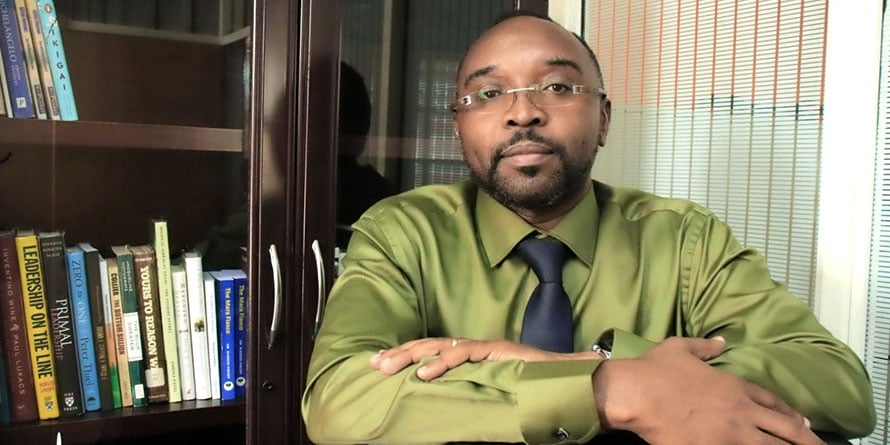As a longtime business executive, Ron Williams is often asked for advice on management issues. He likes to keep his answers clear and simple. One of his favorite mantras is, “Don’t get stuck in paralysis by analysis.” He also tells young people not to map every step of their careers because, like him, they never know where they may end up. Williams grew up in Chicago’s South Side, where he used to wash cars, and became one of the few African-Americans to lead a Fortune 500 company, serving as chairman and chief executive officer of Aetna. He’s on the board at American Express, Boeing and Johnson & Johnson, and also runs his consultancy, RW2 Enterprises. Williams spoke to Knowledge@ Wharton:
I read that part of the reason why you wrote this book was because you have often been asked to talk about your upbringing and career, going from Chicago to CEO.
Ron Williams: That’s correct. I get quite a few phone calls from CEOs who are going through transformational change or confronting particular problems. And I’ve gotten a lot of phone calls from people who were completing their MBA programs, who were mid-career, who were aspiring leaders, trying to figure out how do they develop, what do they need to do in order to get to the C-suite? Based on that, I determined that it would be helpful to have a practitioner’s point of view. The book’s about my experience, but it’s also about a collection of other CEOs, including women CEOs, ho have risen to the top from fairly modest backgrounds.
How did you develop your leadership skills and style over the years?
Williams: There are several things that I always recommend. One is that you have to adopt a particular leadership style and approach. The approach I describe is values-based high performance. You treat people with respect and learn how you can make certain that people are achieving the right goals, doing it the right way, getting the counseling assistance that they need. Thinking consciously about your performance approach is really important.
Can you talk about mentorship and feedback, which are two topics in the book?
Williams: Mentorship is extremely important. People often think is that there’s only one way to have a mentor. In a lot of ways, you have official mentors and you have unofficial mentors. You can learn as much about what not to do as you can about what to do. When you have an interest in a professional who has done well, who is exhibiting the kind of leadership attributes that you think could be helpful, working to establish that relationship is extremely important. But you can learn from everyone that you come into contact with, if you have an open mind.
When do you think the idea of being a leader starts to formulate in a person’s mind?
Williams: It’s a journey, it’s not an event. It’s not a process. Many believe that leaders are born with some innate charisma, and certainly there are leaders who do have that capability. But the vast majority of leadership is learned. It’s individuals who have a high tolerance of failure, who have an ability to get up and to try to demonstrate leadership and participate in activities where they learn the lessons of leadership from others.
You say that values are an important component to leadership, so does the size of the company matter? If you’re following what you believe to be good values and core competencies, can you have the same success as a leader in a small business as you can in a Fortune 500 firm?
Williams: That’s true. One thing I learned along the way is that, as a CEO or the CFO, you are very excited about the financial results of the business. But most people who work in a business want to be part of a clear and elevating goal. They want to make the world a better place. One of the obligations of a leader is to connect the business activity to things that make the world a much better place.
What are the unique sets of challenges to managing a startup or smaller business?
Williams: One is the rate at which people are hired. You end up with the person you hired six months ago training the person you hired three months ago, who’s training the person you hired a month ago, who’s training the person you hired yesterday. It can lead to a dilution of both the company culture and lack of clarity around the strategy and what the founders really want to accomplish. Maintaining that over the rapid pace of change and staying connected to the customer base in that period does require somewhat different leadership skills, because it’s much more about finding your place in the market than an organization that is very large, which has a different set of challenges. When you’re building it out and rapidly hiring, it’s extremely important that those new employees really understand the strategy, the values and the culture of the company to avoid significant problems. One of the things that companies often don’t fully appreciate is that the culture and values are the curbs on the side of the road that keep the company out of trouble. The more you emphasize those, the taller those curbs get on the roadway. And they provide a lot of insulation against challenges and troubles.





